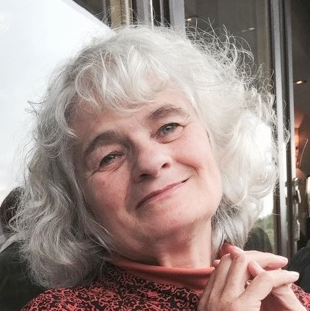 Pierre Teilhard de Chardin, a French Jesuit and palaeontologist, who lived between 1881 and 1955, spoke of a collective awareness toward a consciousness of the divinity within every particle of life. He believed that humanity is not at the centre of the universe, but integrated into a divine whole with its own evolutionary path. This strand of theology may not have been welcomed pre-Vatican II but the Jesuit was posthumously extolled by Pope Benedict XVI, and his theological teachings cited by Pope Francis in the 2015 encyclical, Laudato Si’
Pierre Teilhard de Chardin, a French Jesuit and palaeontologist, who lived between 1881 and 1955, spoke of a collective awareness toward a consciousness of the divinity within every particle of life. He believed that humanity is not at the centre of the universe, but integrated into a divine whole with its own evolutionary path. This strand of theology may not have been welcomed pre-Vatican II but the Jesuit was posthumously extolled by Pope Benedict XVI, and his theological teachings cited by Pope Francis in the 2015 encyclical, Laudato Si’
Spiritual ecology recognizes the sacred nature of all of creation. It recognizes that there is a spiritual component in all aspects of environmentalism and earth stewardship. Central to Spiritual Ecology, which is not based upon a single faith, is an awareness of the interdependence and living unity of the ecosystem. We need to nurture a way of life that is in harmony with the earth, a culture that cares for the soul as well as the soil. Thomas Berry, an American priest and ecotheologian, was born in 1914 and lived till 2009. A dedicated proponent in the Spiritual Ecology movement, he championed the need for a sense of wonder and reverence for the natural world, an awareness of the sacred within creation. He advanced many of Teilhard de Chardin’s views, including the belief that humanity is not at the centre of the universe.
Mary Evelyn Tucker worked with Thomas Berry and carried on his legacy. With evolutionary philosopher Brian Thomas Swinne, she produced the Journey of the Universe, a Film that weaves together scientific discoveries with deeper discernments regarding the nature of the universe. She was co-founder with her husband, John Allan Grim, of the Forum on Religion and Ecology at Yale University, which explores religious worldviews and ethics so as to deepen the understanding of global and local environmental concerns and to find solutions.
Spiritual awareness is an essential ingredient in ecological sustainability. There is a need for contemporary religions to place emphasis on environmental awareness and to show concern for ecological issues. Pope Francis is taking prophetic leadership in this regard with his urgent calls to Catholics to care for “our common home”.
Ecophilosopher, Joanna Macy, a scholar of Buddhism and deep ecology, has been an active voice in peace, justice, and ecology movements for five decades. Her programme, Work That Reconnects, helps lessen despair and indifference in the face of ecological hopelessness. It brings a renewed way of appreciating the world, as our larger living body.
Thich Nhat Hanh, the Vietnamese Buddhist Monk, speaking in Denver, Colorado, in August 2007, said in Buddhist practice you should take care of your five skandhas but you should also take care of your environment because the environment is you. On Mindful Consumption in the Kingdom of God he cited: If we recognize that this planet belongs to the Kingdom of God, we will cherish and protect it so that we can enjoy it for a long time. And our children and their children will have a chance to enjoy it. https://scholarworks.umb.edu/humanarchitecture/vol6/iss3/5/
Eco-Congregation Ireland endeavours to facilitate churches of all denominations throughout Ireland to celebrate the gift of God’s creation, to recognise the inter-dependence of all creation and to care for it in their life and mission. Environmental concern ought to encompass all facets of activity such as worship, personal lifestyles, property and finance, community outreach and contact with the developing world. This Lent the Church of Ireland Bishops’ Appeal, for example, are running a campaign around climate justice. People are asked to place money in a labelled container every time they take a car journey, especially if it is a journey they could take by public transport, bike or walking. The money raised will go to support three projects where people have been greatly affected by climate change.
Core beliefs about the earth and responsibilities toward our planet need to be honed. There is a myriad of statistics and legislative decrees regarding the environment. Charges, fines and penalties abound. Conflict often ensues. What is needed is a sense of awe and reverence. In his book Soil, Soul & Society, Satish Kumar, who has been gently working for change for over 50 years, presents a new trinity for our time. Satish urges us to nurture a consciousness that reveres nature. His message is that we are members of a one-earth society, and caring for the earth and soul is interrelated.
